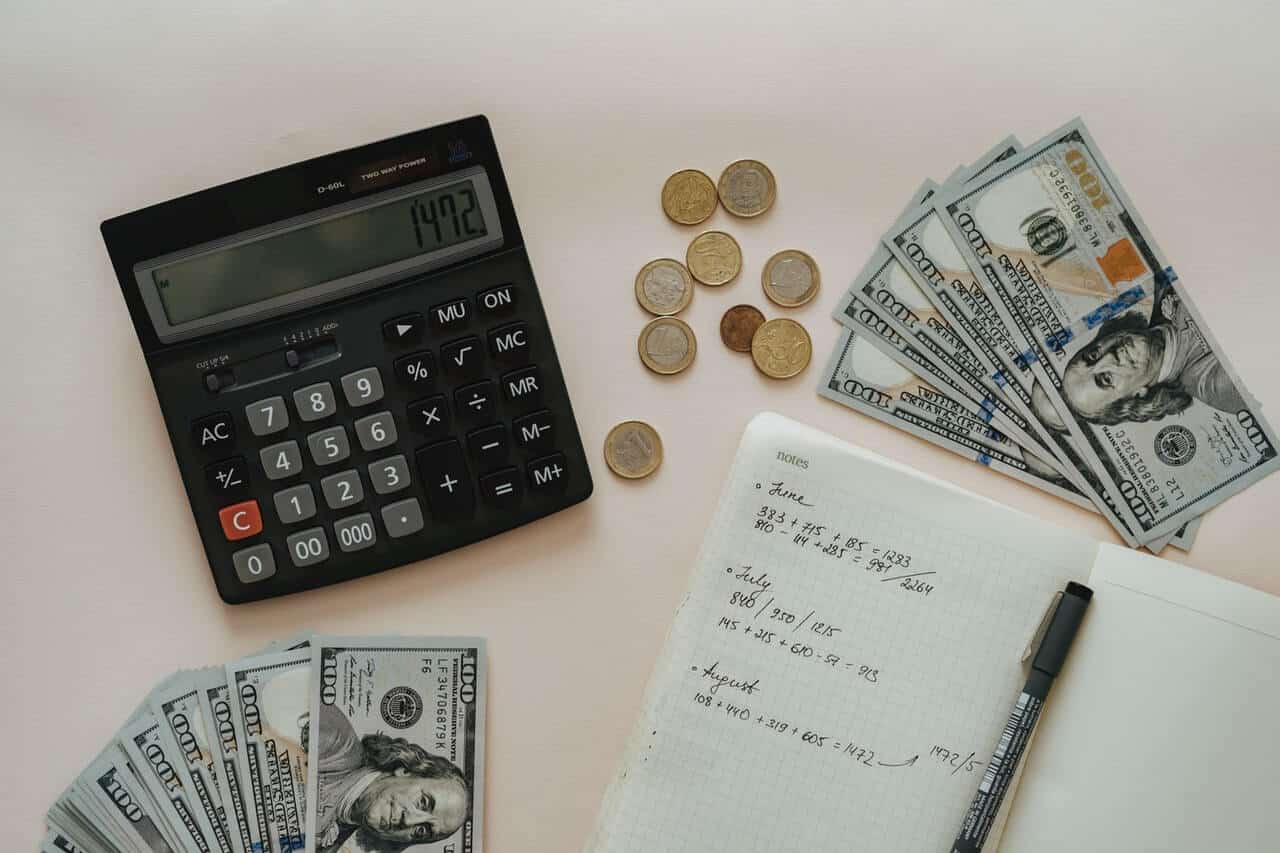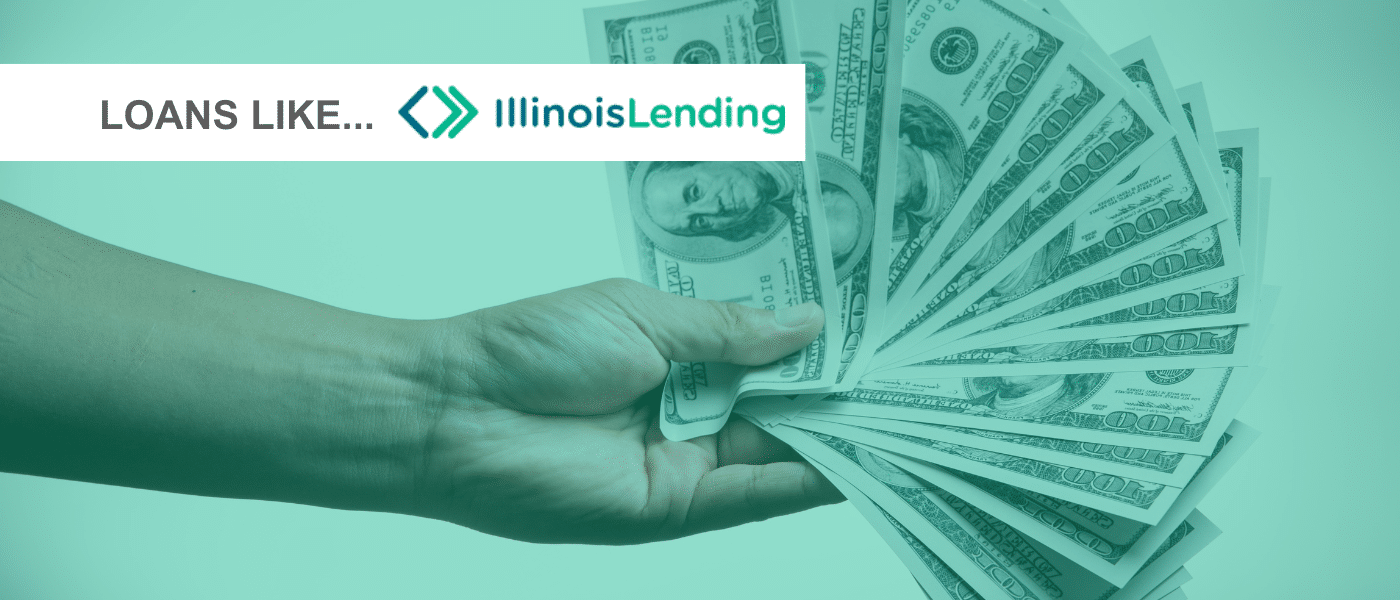Banks set interest rates on loans using the federal funds rate, prime rate, and state laws regarding rates for different types of financial products. On an individual level, banks and other financial institutions will also consider the borrower’s credit score and financial history when determining interest rates.
The world of personal finance can be a complicated one. There are many things to keep track of, due dates to remember, and personal finance basics to learn. And one of the more complex aspects of personal finance is interest rates. There’s the prime rate, the federal funds rate, and different interest rates for various financial products. So, if you’ve ever wondered, “How do banks set interest rates?” then you’ve come to the right place.
If you’re currently in the market for a loan from a bank, there’s a lot you need to know. Being familiar with different types of personal loans will help you understand what to expect when you walk into the bank. An essential thing you should be aware of before signing on the dotted line is how interest rates work. Unfortunately, it’s not an easy topic to wrap your head around.
Along with figuring out interest rate basics, you also have to know the types of interest rates you’re eligible for based on your current credit score. This can all be fairly overwhelming, even for folks with a firm grasp on their finances.
Read on to learn more about interest rates, the prime rate, the federal funds rate, and more.
What Is an Interest Rate?
An interest rate is, quite simply, the cost of borrowing money. Most commonly expressed as a percentage of the principal, interest rates vary based on the type of financial product you’re using. The principal is the amount of money that you’re borrowing. So when the bank tells you that the rate is something like 3%, it means that you’ll owe 3% of the principal on top of repaying the loan.
No matter what financial product you’re considering, whether it’s online cash advance loans or a credit card, it will carry an interest rate. Credit cards, auto loans, mortgages, and even payment plans for electronics all have an interest rate.
There are also ways to make money through an interest rate. Just like you would pay interest to a lender for taking out a loan, you can earn interest for specific accounts. For instance, savings accounts will have an interest rate. So, over time, you’ll make money by keeping your money in a savings account. But, of course, this applies to many other types of investment accounts and retirement accounts.
How Do Interest Rates Work?
It’s critical that you fully understand the rate you’re getting, no matter what type of loan it is. It’s just like understanding the total cost of anything that you’re purchasing.
Now that we know that an interest rate is the cost of borrowing, let’s look at an actual example.
Any time you’re considering a new loan, you should not only know the percentage of the interest rate, but you should calculate the total dollar amount you’ll owe.
For example, let’s say you are trying to get approved for a personal loan of $10,000. If the interest rate is 5%, then the cost to you is $500. So, the total amount that you’ll repay by the end of the loan term is $10,500. But, of course, that’s assuming you won’t owe any late fees or other unforeseen charges.
Different Interest Rates for Different Things?
The interest rate that you receive will depend on several factors. One of these factors would be the type of loan or financial product that it is.
For example, the rate you receive for a mortgage will be very different from the one you receive for a credit card. This is because credit cards tend to have higher interest rates. And certain predatory personal loans tend to have the highest interest rates. These would include payday loans, pawn shop loans, and more.
Before you go into a bank to apply for a loan or fill out an application for a new credit card, make sure that you do plenty of research on the rate. This way, you’ll know what to expect, and if they aren’t offering you what you want, you can consider a different bank or company.
What Is the Federal Funds Rate?
One term that you may hear quite a bit during your interest rate research is the “federal funds rate.” The federal funds rate is the rate that banks use when they lend money back and forth. The federal funds rate is forecasted to reach to almost 6% in January of 2024.1
Banks are required to have a certain amount of funds in reserve. This reserve amount is based on the current level of deposits that the bank has. These funds are stored in a Federal Reserve Bank.
The Federal Reserve is the central bank of the United States. If a bank doesn’t have enough in the Federal Reserve Bank, it will borrow funds from another bank.
And if a bank has too much in the Federal Reserve Bank, it may lend some to a bank that’s running low on fed funds. The interest rate that these banks use when they borrow from one another is the federal funds rate.
Just like other interest rates, the fed funds rate may fluctuate. Eight times a year, a special committee meets to determine the federal funds rate. Their decision for what the Fed funds rate should be is based on several economic factors, including the inflation rate and the overall financial health of the economy.
What Is the Prime Rate?
The prime rate is the rate that the most creditworthy borrowers receive. The prime rate is determined based on the federal funds rate. However, it’s usually slightly higher than the fed funds rate and below the average interest rates being given to most borrowers.
The prime rate essentially forms the basis of many other types of interest rates. For example, the prime rate will affect the interest rate you receive for a mortgage, personal loan, or even a small business loan.
There’s not necessarily one single prime rate. When you see a prime rate quoted, it may be an average of the prime interest rates from several of the largest banks. The most common prime rate is the one that’s published daily by the Wall Street Journal.
Getting a rate that’s close to the prime rate is the target for all borrowers. But you’ll also need to be aware of what credit score is needed for a personal loan.
How Your Credit Score Affects Interest Rates
Now that you’re familiar with the different interest rates and how they work, it’s time to talk about what you can do to get the best rate. While much of this is outside of your control, there is one thing you can do to ensure you’re getting a reasonable rate.
Having a good credit score will lower overall interest rates for loans, credit cards, and other financial products.
Your credit score affects a lot of things throughout your life. For example, it may affect whether or not you’re approved for loans, the rate you get, and the loan size. And it all comes down to having a high credit score.
Your score is determined based on your credit report. This is a document that tracks your financial behavior. The major credit bureaus review the information in your credit report and then assign you a three-digit number. This number tells lenders, banks, and financial institutions how trustworthy you are with money, which is also known as “creditworthiness.”
The scores are categorized into the following tiers:
| Credit Score Range | Credit Rating |
| 300–580 | Poor Credit |
| 580–669 | Fair Credit |
| 670–739 | Good Credit |
| 740–799 | Very Good Credit |
| 800–850 | Excellent Credit |
It’s critical that you know your current score and check your credit report from time to time. Sometimes, there can be errors on your report that will bring down your score. If you find one, it’s essential to alert the credit bureau so they can remove it.
It makes sense that lenders and banks would want to give better rates to borrowers with good scores when you think about it. A good score tells them that you pay back your debts and you manage your money well. On the other hand, a low score will say that you might not return the loan amount and interest. It shows that you haven’t managed your money as well as someone with a higher score.
As a bank or lender, you’re taking on a certain amount of risk when you offer people loans. You can’t guarantee that anyone will pay you back. Even borrowers with high credit scores sometimes don’t return loans. You can lower your overall risk by only offering loans to those who have proven that they are creditworthy.
Now, this doesn’t mean that you can’t get a loan if you have a lower score. But it does mean that it will be more complex, and you will probably pay more in interest.
FAQS
Mortgage interest rates are often lower than rates for unsecured loans like personal loans or credit cards. This is because mortgage loans are secured by property, reducing the risk for mortgage lenders. However, they can be higher than rates for loans secured by more liquid assets, like mortgage-backed securities or mortgage bonds.
The Federal Reserve influences interest rates indirectly through the federal funds rate, which affects the cost of borrowing money for banks. Changes in this rate can lead to adjustments in mortgage rates, car loan rates, and other consumer lending rates.
Yes, having a high credit score can qualify you for lower mortgage rates. Mortgage lenders use your credit score as an indicator of risk, and a higher score can demonstrate financial reliability, leading to more favorable rates.
Interest rates determined for a personal loan are typically higher than for a mortgage loan due to the higher risk associated with unsecured lending. Mortgage loans are secured by real estate, which generally allows for lower rates.
Your credit report significantly impacts the interest rate you receive for a car loan. Lenders assess your credit history to gauge risk. A low credit score can result in higher interest rates due to perceived higher lending risk.
To get the best possible mortgage rate, maintain a strong credit score, shop around with multiple mortgage lenders, and consider timing your loan application when mortgage rates are lower. Also, look into different types of mortgage loans and rates, such as fixed-rate or adjustable-rate mortgages.
Mortgage rates fluctuate due to changes in the broader economy, Federal Reserve policies, and other market factors like the demand for mortgage-backed securities and mortgage bonds. Staying informed about these changes involves monitoring financial news and consulting with mortgage professionals.
A Word From CreditNinja on Interest Rates
Interest is determined by large banks and committees based on the overall state of the economy. But the one thing you have within your control is your credit. Maintaining a high score will guarantee better rates, whether you’re applying for a mortgage or even a trucking business loan.
Just make sure you pay attention to the rate. Don’t just take the percentage at face value, either.
You need to calculate the dollar amount that you’ll be paying back.
Even your savings accounts will carry a rate. Please make sure you’re aware of what it is so you know how much money you’ll make by storing your cash with that particular bank.
Borrowing money can be a complicated process. And if you’re considering a new loan or even a credit card, CreditNinja suggests you do plenty of research. That way, you can ensure that you’re getting the best deal possible based on your specific financial situation!
Ready to learn more about interest rates, handling your finances, where do banks get money to lend to borrowers, and more? Check out the CreditNinja dojo for hundreds of resources available to everyone for free!
References:
1. United States Fed Funds Rate Forecast | Trading Economics
2. How Interest Rates Are Determined | The Balance
3. Federal Funds Rate | Investopedia
4. About the Fed | Federal Reserve
5. Prime Rate | Investopedia
6. What is a FICO Score? | My FICO






